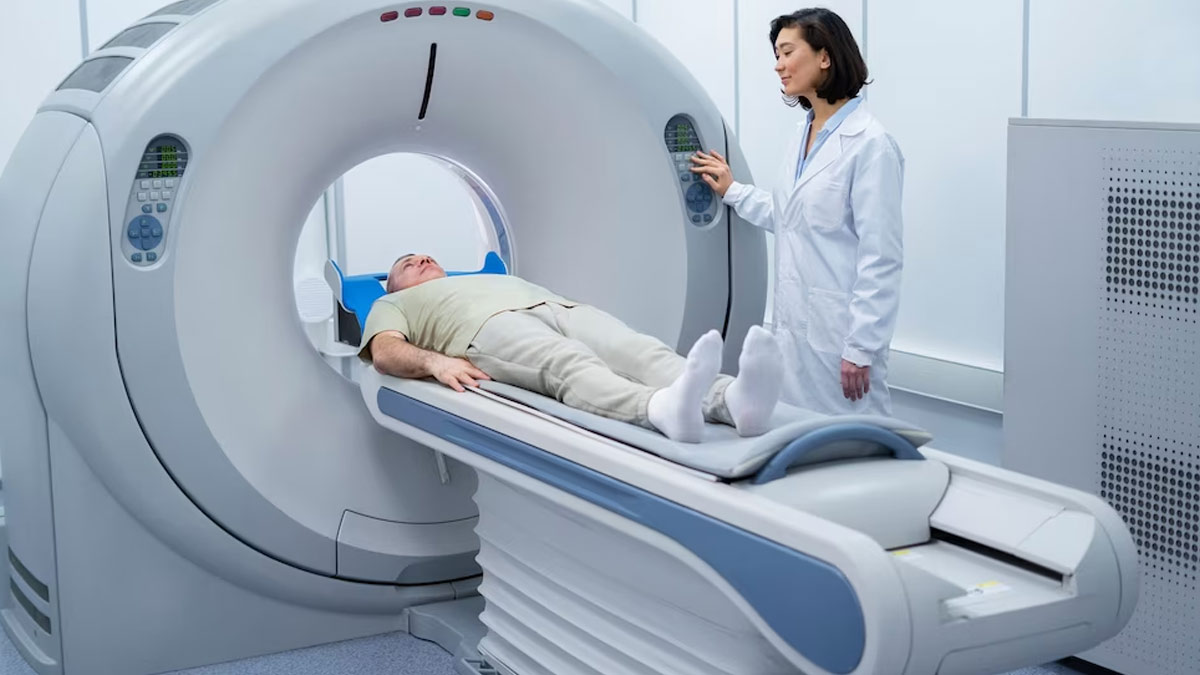
Just the mere thought of undergoing a surgery can be daunting and anxiety-inducing for many individuals. However, advancements in medical technology have given rise to a revolutionary field known as Interventional Radiology (IR), offering patients a safer and more efficient alternative to traditional surgeries. Though the field has been around for nearly 50 years, many of the patients requiring the interventional procedures are not aware of them. To know more about it, we spoke to Dr Arjun Reddy, Interventional Radiologist, Apollo Hospitals, Hyderabad.
Table of Content:-
Traditional Surgeries Vs Interventional Radiology
According to Dr Reddy, "In traditional surgeries, large incisions and prolonged hospital stays are often necessary, leading to increased pain, longer recovery periods, and higher risks of complications. With IR, patients can experience excellent results, while recovering faster with reduced hospital stay."
He said, "Patients can resume their daily activities sooner and regain their quality of life more swiftly. Moreover, these procedures often require only local anaesthesia, eliminating the risks associated with general anaesthesia and its potential side effects."

"IR techniques employ advanced imaging technologies, such as X-rays, ultrasound, Computed Tomography (CT) scans, and Magnetic Resonance Imaging (MRI), which are precision-based procedures," said the doctor. He added that this approach enables interventional radiologists, who are highly-trained physicians specialised in minimally invasive image-guided procedures, to navigate inside the body using thin catheters or needles inserted through small incisions. "These minimally-invasive techniques often eliminate the need for large surgical incisions and significantly reduce the associated risks and recovery time," he added.
Role Of Interventional Radiology In Treating Chronic Health Conditions
IR has the potential to serve as a standalone treatment option for various chronic health conditions. Citing examples, Dr Reddy said, "For people living with cancer, it plays a critical role in treating tumours." It offers procedures like Radiofrequency Ablation (RFA), which uses heat to destroy tumours, and Transarterial Chemoembolization (TACE), which combines targeted chemotherapy delivery and blocking blood flow to the tumour.
"These techniques provide effective alternatives to open surgeries, allowing patients to receive localised treatment without the need for invasive procedures," he added.

Dr Reddy said, "Through IR, vascular conditions, such as Peripheral Artery Disease (PAD) and Deep Vein Thrombosis (DVT) can be effectively treated." He added that IR specialists use techniques like angioplasty and stenting to open up narrowed or blocked blood vessels, which improves blood flow and relieves symptoms.
Also Read: Infini Radiology Treatment: Know How It's Beneficial To Treat Skin Problems
"What’s exciting about IR is that through the use of catheters and embolisation techniques, many common non-life-threatening conditions, such as uterine fibroids, varicose veins, and benign prostatic enlargement causing urinary issues, can now also be treated without surgery," said the doctor.
"Another common condition IR can treat without surgery is benign thyroid nodules that once required surgery," said the doctor. "Interventional radiologists can treat these nodules using small needles that can destroy them by generating heat under imaging guidance. These procedures can also avoid scars, helping in cosmesis," he added.
Bottomline
"While IR plays a crucial role in healthcare and is widely recognised worldwide, there is a significant lack of awareness among patients and even a few categories of doctors and medical professionals about this specialised field," he added. Hence, it is important to create more awareness about the advantages of IR for better patient outcomes.
By opting for this procedure, individuals can embrace a less-invasive approach to treatment while benefiting from improved results and reduced risks. Dr Reddy suggested that if you or a loved one is planning a surgical operation, look at the options provided by IR. Consult a qualified interventional radiologist to determine if you should choose this as an alternative to traditional surgeries.
Image Credits: freepik
Also watch this video
How we keep this article up to date:
We work with experts and keep a close eye on the latest in health and wellness. Whenever there is a new research or helpful information, we update our articles with accurate and useful advice.
Current Version
